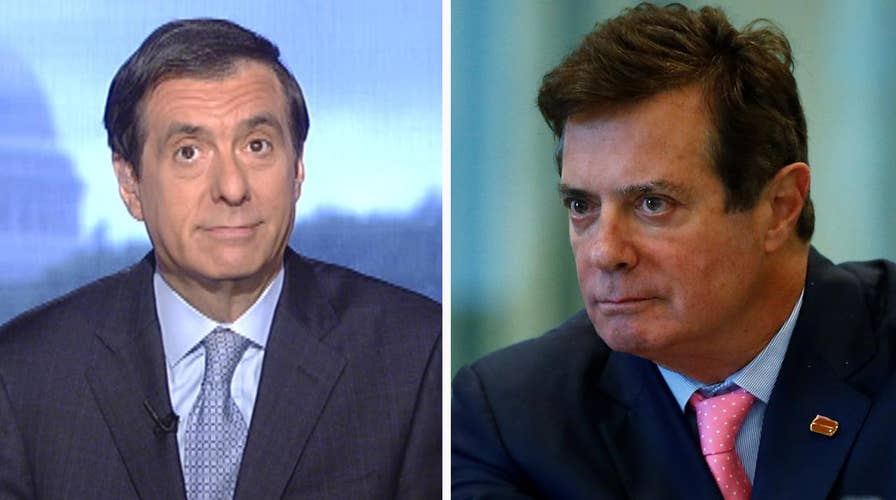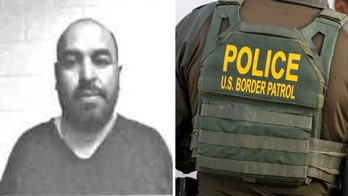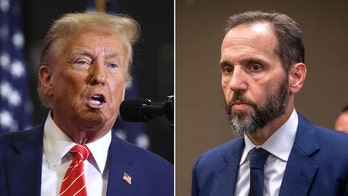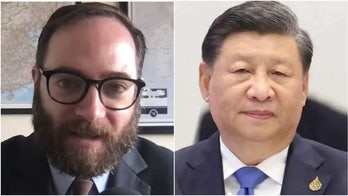Kurtz: Paul Manafort feeling the heat
'MediaBuzz' host Howard Kurtz weighs in on the back-to-back breaking stories on Trump's former campaign chairman, Paul Manafort
Suddenly, there are a whole lot of leaks about Paul Manafort.
Could this, just possibly, be the special counsel’s way of putting pressure on President Trump’s former campaign chairman?
The allegations against Manafort are serious, and he could be in deep trouble. But the detailed nature of the leaks is also troubling. As a onetime Justice Department reporter, I can tell you that such leaks in a criminal investigation are rare, as well as illegal.
Twin scoops by the New York Times and CNN suggest that Robert Mueller is using highly aggressive tactics—“shock and awe,” the paper says—in the Manafort probe.
The Times discloses that when federal agents conducted an early-morning raid at Manafort’s Virginia home in July, they picked the lock. As for details, the story says the agents not only took documents and copied computer files, “they even photographed the expensive suits in his closet.”
More important, the Times says, “prosecutors told Mr. Manafort they planned to indict him, said two people close to the investigation.” It is not unusual for a potential defendant to receive a so-called target letter, but that is supposed to remain confidential. It’s possible, of course, that this info came from Manafort’s defense team.
But the same can’t be said for the story that broke moments earlier, when CNN reported that federal investigators wiretapped Manafort both before and after the election.
Manafort, a veteran Washington lobbyist before he joined Trump’s campaign, is under investigation for possible money laundering, tax violations and failure to disclose foreign lobbying.
The disclosure does not confirm the president’s charge that the Obama administration wiretapped him and Trump Tower. The original wiretap of Manafort, approved by a special court, began in 2014 and involved his work with Ukraine’s former ruling party.
That wiretap was discontinued for lack of evidence. But, CNN reports, “sources say the second warrant was part of the FBI's efforts to investigate ties between Trump campaign associates and suspected Russian operatives.”
It isn’t known whether Manafort conversations with Trump, as candidate or president-elect, were picked up during the surveillance. Manafort has denied having knowingly communicated with Russian intelligence operatives.
It’s hard to avoid the impression that Mueller is trying to squeeze Manafort in an effort to flip him against the man whose campaign he ran for five months.
Let’s say that Manafort, who’s entitled to the presumption of innocence, is convicted of money-laundering or lobbying charges. And let’s assume the same thing happens to Michael Flynn, who faces allegations of improper lobbying for the Turkish government and has just launched a legal defense fund.
It is possible that such convictions would have nothing to do with Mueller’s core mandate of probing alleged collusion between Trump and Russia or a possible coverup of such efforts.
It’s obviously an important story that one of the president’s three former campaign managers is said to be told he faces indictment. But the media should be careful about not going beyond the evidence.





